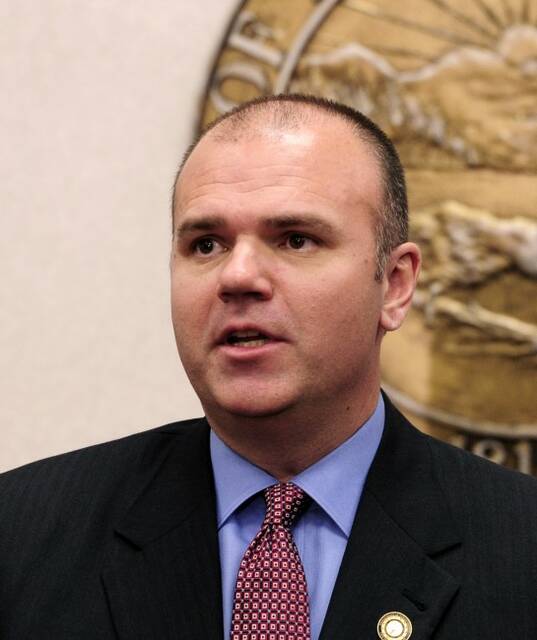When a young man was fatally shot last month on the University of Indianapolis campus, eight hours passed before students were alerted.
It came amid a rash of crime on campus, including an armed robbery, burglary, two attempted robberies, five cases of theft and two shootings, including the fatal shooting Oct. 19 and another shooting Nov. 10 a half-mile from campus. All of the crimes occurred over the span of three weeks, between Oct 19 and Nov. 10, according to Watchdog Alerts, a campus messaging service.
University officials recruited and hired former Indianapolis and Corpus Christi, Texas police chief Troy Riggs as a public safety consultant. He started his new position Nov. 8, and will spend the next two months putting together an overall review of public safety at the university, as well as short- and long-term goals. The goals must be executed with $500,000 the college has set aside for improving communication with students and making campus more secure.
Goals that have already been established include adding four officers to the university’s police department, bringing its total to 18, adding cameras and lighting to campus parking lots and areas around dormitories. Other goals include quicker and more reliable communication between college officials, police and students, more interactions between police and students, such as on-campus walks, and building relationships with neighborhood organizations around campus, Riggs said.
“Communication broke down the night of the shooting,” Riggs said of the delay in reporting. “People are saying, ‘do better.’ We will do better, and take steps to make sure that doesn’t happen again.”
Monday presented an opportunity for Riggs to talk with students about their concerns and share advice at the Switzer Student Center.
Sophomore MacKenzie Wineland said her biggest concern revolves around thefts that occurred in residence halls on campus.
“My residence hall, and in particular my room, was the victim of a burglar crime that happened,” Wineland said. “My issue was them getting into the building. Why aren’t there locks on each of the hall doors?”
Camille Dobbs, a freshman, wanted an increase in communication between officers and students.
“The past few weeks, with robberies every day, I was a little bit worried,” Dobbs said. “The police can’t be everywhere every time. There’s only so much we can expect them to do. But they should take the initiative. I think they need to increase communication. It will settle the fear and will prevent rumors from spreading. If people don’t trust officers, they will feel better about reaching out to them. A lot can come from communicating.”
Riggs has had recent meetings with university officers to encourage them to establish a rapport with students, he said.
“We will see more officers out of their cars, interacting with students. It has to change here in the near future, and it will,” Riggs said. “It will help reduce the fear of crime and forge partnerships needed for public safety.”
It’s important to find a balance between not enough officers and too many, said Monioluwa Asekunowo, a freshman.
“People complain of not enough cops, but at the same time, people will complain if you have cops patrolling the whole school. You may feel even less safe,” Asekunowo said. “I really like the idea of inviting the police to our events. It’s not just their job to reach out to us, but because of how people paint them, it might be hard for students to reach out to them. The police themselves need to foster a safe space to talk to them and students have to make an effort to get to know the police, too.”
Finding the right officers is more important than finding new officers quickly, Riggs said.
“Don’t just take a body. Take somebody that’s committed to service. Take your time and find people,” he said. “Some people who leave after 30, 40 years of service to the community would love to serve somewhere else. They bring a wealth of experience and crisis management.”





